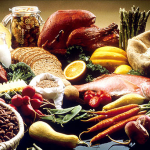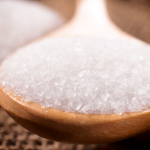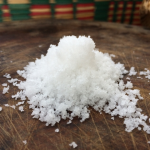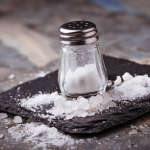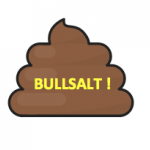We've been told for decades that less is more when it comes to salt in the diet. Recent research has thrown that conclusion into doubt. Can we identify children who may be at risk for SIDS before it suddenly and tragically strikes?
salt
We now have another global study from The Lancet showing the effect of diet on global health. Spoiler Alert: Salt is still bad, but diets high in red meat have the least effect. But the real purpose of the study is to set the table, as it were, for a change in policy. If the cost of drugs is too high, not to worry. Food is the new medicine.
Among the latest fads are specialty salts, which are sold as if they are magic potions – by those who are always selling magic potions. Sea salt is one of them. In reality, this product should be called "Throw Sea Salt and Money Over Your Shoulder."
Although governmental and medical advisories warn the population to "eat less salt" on the theory that this will help deal with hypertension, there are some holdouts who avoid giving such wholesale advice. That includes ACSH, and a Doctor of Pharmacy who says it's sugar, not salt that is the root of all (vascular) evil. And, he says, we should eat more salt. Who to believe?
Reducing sodium consumption to ward off hypertension, stroke and heart disease has been the goal of nutritionists for many years. They warned that much of the sodium intake comes not from the salt added at the table, but from processed foods. But a new study indicates that the sodium content of such foods has decreased over a recent 15-year period.
There are probably few, if any, nutritional advisories that are as hotly debated as the appropriate level of sodium intake for healthy adults. Yes, the Dietary Guidelines and the American Heart Association recommend an upper limit of 2,300 mg sodium per day (about a teaspoon). But some new research is being added to the literature indicating that level of restriction may be too strict.
The group World Action on Science and Health has declared March 20-26 to be Salt Awareness Week. They're encouraging everyone to decrease salt consumption to reduce the risk of hypertension, heart disease and stroke. But a recent analysis suggests that this advice may be too broad a brushstroke for the majority of people.
Does road salt turn female tadpoles into male frogs? A group from Yale says it does. We say, "Bullsalt!"
Two unnecessary instances of how government is trying to tell the public what they should, should not, and must do, to keep healthy: (1) mandatory GMO labeling is the way to go, and (2) too much salt, is, well, too much, and some restaurants must warn patrons of that.
Sodium restriction has been used to help treat heart failure for many years. But new data suggest that the strategy may not be effective in preventing either additional hospitalizations or death. Could it be that salt isn't the villain we've come to think it is?
With a new law passed Wednesday, New York City has become the first jurisdiction in the country to require salt labeling on chain restaurant foods that exceed 2,300 milligrams. However, don't expect it to improve public health, and the science suggests that the measure might actually harm consumers.
Does high salt consumption cause obesity? A recently published study says so, but sometimes research isn't reliable, or reliably interpreted. After giving this a shake, we've found that the results are fairly hard to swallow.

